In this article we will consider news, changing the current state of affairs. Turns out, exclusive rights for a trademark can belong to multiple individuals in a joint fashion. Thus, the monopolistic, exclusive nature of rights changed.
A company filed an application to register a trademark exclusive rights alienation contract with the Rospatent (Russian Patent and Trademark Office).
With this particular contract was supposed to transfer 50% of exclusive rights in favor of two other companies. Rospatent refused to register such contract; refusal was motivated by the fact that the applied for registration would result in a trademark exclusive right co-ownership, which is deemed impossible according to Russian legislation and judicial practice.
The companies filed a lawsuit; courts of the first and second instances both upheld the arguments made by Rospatent, but the Court for Intellectual Property considered the companies’ arguments convincing and abolished all subordinate courts’ judicial acts. We are now going to examine this landmark Resolution made by the IPC on December 15, 2017 under No. C01-1002 / 2017.
Companies affected by this contract registration refusal came up with the following arguments:
1. Contract provisions regarding alienation of 50% of exclusive rights to the VOGUE trademarks are not to be evaluated in terms of proprietary rights law, but rather as an element of drafting methodology.
2. In case No. СИП-248/2014 the Intellectual Property Court approved an amicable agreement, according to which the parties agreed on joint ownership of said trademarks. Note that World Intellectual Property Organization (WIPO) established a joint ownership regime over the international trademark. Rospatent had no objections in regards to establishment of legal protection (thereof) on the territory of Russia.
3. Since according to case No. СИП-248/2014 the VOGUE EUROPE trademark was granted with a joint ownership regime with no objections from Rospatent, refusing to register the sued over agreement regarding VOGUE trademarks would give rise to a possibility of misleading consumers about the identity of product manufacturer and origin, which in unacceptable.
The arguments made by the courts of the first and second instance:
1. The first instance court based its argument on the fact that alienating exclusive rights to a trademark to more than one party contradicts the essence of the exclusive right and its function of individualizing goods and services of legal entities or individual entrepreneurs.
2. Subsidiary legislative acts do not provide for state Rospatent registration of “alienation of 50% of the exclusive right” to a trademark under a contract.
3. Legal provision of clause 2 of Article 1229 of the Civil Code of the Russian Federation (hereinafter – “the Code”) on joint ownership over exclusive rights is located in “General Provisions” section of Part IV of the Code refers exclusively to collective trademarks.
4. The agreement on joint ownership of exclusive rights contains provisions specific to differing types of contracts, thus it can be characterized as a mixed contract, which contradicts Rospatent‘s subordinate legislation on inadmissibility of internal contradictions in contracts submitted for registration.
Conclusions of the Court for Intellectual Property:
1. Current legislation does not contain and provisions prohibiting joint possession of exclusive right to a trademark, on the contrary, it directly provides for this possibility (clause 2 of Article 1229 of the Civil Code of the Russian Federation).
2. A literal interpretation of Article 1229 of the Code allows us to conclude that the only one of the means of individualization, exclusive right to which cannot possessed jointly by several individuals, is a company name.
3. The exclusive right is not defined by the fact that is belongs to one sole person, but rather by that it is assigned to a person or persons defined by law, and on the grounds established by it; all other persons are not entitled to use an exclusive-right-protected object without permission of its legal owner (or owners).
4. By virtue of Article 1510 of the Code, an exclusive right to a collective trademark belongs to an association of legal entities, that is, to one legal entity, and not to several rightholders. Thus, provisions of the Civil Code regarding collective trademarks cannot be regarded as special rules in relation to the provisions of paragraph 2 of Article 1229 of the Code.
5. Provisions of international agreements (paragraph (3) of Article 5 of the Paris Convention for the Protection of Industrial Property (1883) and Article 11 of the Singapore Treaty on Trademark law (2006)) explicitly provide for the possibility of co-holding exclusive rights to a trademark.
6. Rospatent did not submit any objections when WIPO established a joint ownership regime for an international trademark VOGUE on territory of Russia.
7. Clause 3 of Article 421 of the Civil Code allows for presence of elements of different types of agreements in a contract (a mixed contract), which in itself does not constitute contradictions in the terms of the contract. Conclusions regarding named contradictions can be made on the basis of interpretation of contract terms, and the appealed acts lack such an interpretation.
8. Considering the principle of freedom of contract (Article 421 of the Code), as well as provisions of paragraph 2 of Article 1229 of the Code, Rospatent had no grounds for refusal to register alienation of 50% of exclusive rights to trademarks.
CONCLUSION: It is not yet clear whether this case will become a landmark one for Rospatent and courts whilst considering registration of contracts in which the exclusive right is meant to be be “split” in half. Will it be possible to divide an exclusive right in other proportions (say 30 to 70, 90 to 10), in relation to other objects of exclusive rights (inventions, utility models, etc.). Too many questions are left to be be answered with time. Only one thing became clear – this case is certainly a unique one, possibly changing the idea about the nature of exclusive rights.
This article was partly drawn from materials gathered from the following websites: ipmagazin.ru, garant.ru, arbitr.ru
Image taken from yandex.ru
Note that the term “ООО” used in the context of this article refers to a limited liability company under the laws of Russian Federation.






